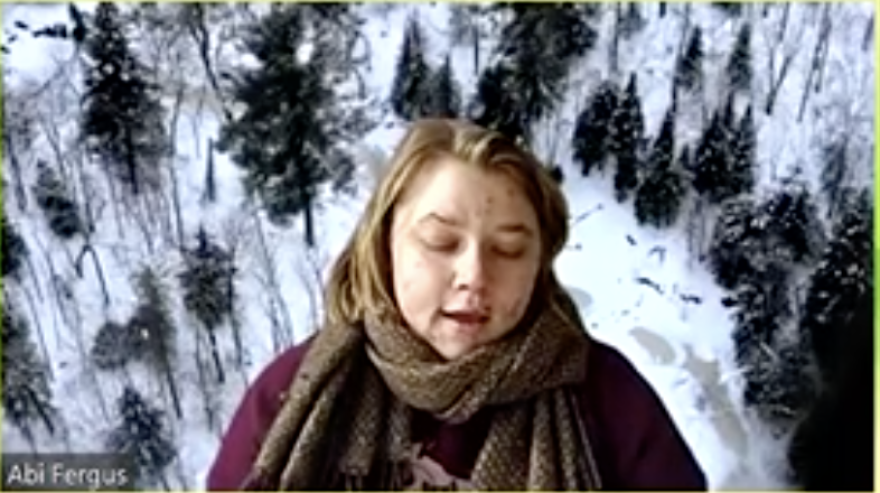The controversy over how the gray wolf, humans, livestock and pets can coexist is not new. The wolf has been on and off of the federal endangered species list within the last decade.
Early this month, the U.S. Fish & Wildlife Service delisted the wolf, transferring its management to states.
A dozen Republican lawmakers in Wisconsin sent a letter to the state's Natural Resources Board urging approval of a hunt this winter. The letter resulted in a special board meeting Friday to discuss the issue.
Sen. Rob Stafsholt reminded the board about the 2011 statute requiring — whenever the wolf is delisted — an annual hunting and trapping season from early November through February.
“Hunting and trapping regulations from the 2014 wolf harvest season could easily be used for a current season. Science was already used for that regulation book; no new science is needed,” he said.
The Natural Resources Board sets wildlife management policy for the Department of Natural Resources (DNR) to follow, which includes hunting seasons.
Wisconsin has held three concurrent annual wolf harvests, the last in 2014. DNR officials are proposing the next kick off November 6, 2021.
Wildlife and Parks Division Administrator Keith Warnke said that gives the DNR time to factor in the latest science — both biological and social. He said one of the first steps is updating the state’s wolf management plan.
“Our goal is to launch a wolf management webpage in early February, launch a public input process in late April or early May, and host the first of four public meetings on the wolf management plan in July,” explained Warnke.
The need of an updated management plan now is a point of contention.
“The management plan that’s in place now, it is solid science. Clearly the science in the current plan would be fully protective of the wolf population of the state of Wisconsin,” said George Meyer, executive director of the Wisconsin Wildlife Federation and a former DNR secretary.
Now-retired DNR wildlife biologist Adrian Wydeven headed Wisconsin’s wolf recovery program and helped craft the existing management plan more than 20 years ago. Wydeven said new research — including population modeling and people’s attitudes about sustaining a wolf population — needs to be considered to properly steward wolves now and into the future.
“We've got more information on just the ecological benefits of wolves, the potential impact on things like chronic wasting diseases and using that as a factor. I think there is a lot of work that has been done since the 1999 plan that needs to be included in updating this new wolf harvest system,” he said.
On Friday, lots of people had a lot to say about the gray wolf — over four hours of testimony. At least 800 watched remotely, and more than 1,000 comments flooded the Natural Resources Board inbox.
Ryan Klusendorf wanted anyone listening to know that his fourth generation 120-cow dairy farm "on the edge of the Northwoods" in Medford is being threatened by wolves.
“Our first known harassment started in 2011 and has not stopped since and I move my cattle within 100 feet of my buildings at night to protect them, and all it did was bring wolves closer to my children as well,” he said. “I plead with you, rural Wisconsin needs the hunt now."

Abi Fergus said tribal input must be factored into Wisconsin’s wolf management and harvest plan. Fergus is a wildlife specialist for The Bad River Band of Lake Superior Chippewa and spoke on behalf of her tribe.
“Bad River and other Anishinaabe bands have stewarded relationships with Ma’iingans (wolves) since time immemorial and hold great knowledge in this area,” she said.
Fergus warned that a decision to hold a wolf harvest in February may create unintended consequences.
“I’d like to point out the high potential for a hunt concentrated during the sensitive mating season would entail even more negative and more unpredictable impacts. Wolves that survive may experience pack breakup and these situations can lead to increased livestock depredation,” she said. “The state has legal obligations to be working with the tribes on this.”
In the end, the board took up a motion to open a wolf hunting season no later than February 10, using the 2014 harvest quotas.
It was voted down 4 to 3, after a lengthy discussion about obligations under a 1983 federal court ruling that clarified treaties signed in the 1800s with Ojibwe tribes.
DNR Chief Legal Counsel Cheryl Heilman explained the state is required to consult with tribes before, not after, a harvest plan is finalized.
“The usual process is that if the department has a committee, and so we have a wolf committee. There needs to be tribal representation. And setting the quota, ordinarily the process would allow us to consult with the wolf committee to get that tribal input. There are other ways that the department could get the tribal input, but I believe based on at least the testimony I heard here today, you haven’t yet taken that step,” she said.
For now, it looks like the DNR will move forward with updating its management plan and approving a hunt starting November 6 after, the agency says, "working collaboratively and transparently with the wide array of diverse interests associated with wolf management in Wisconsin.”






